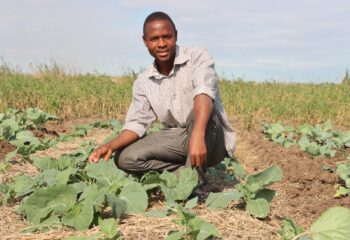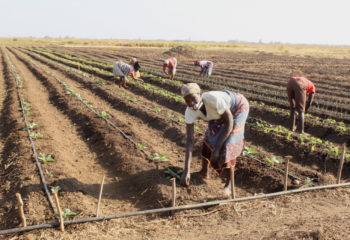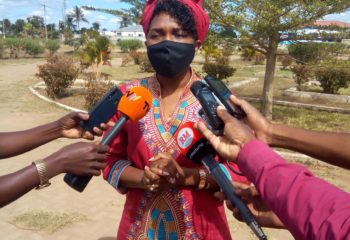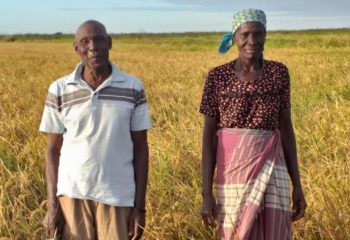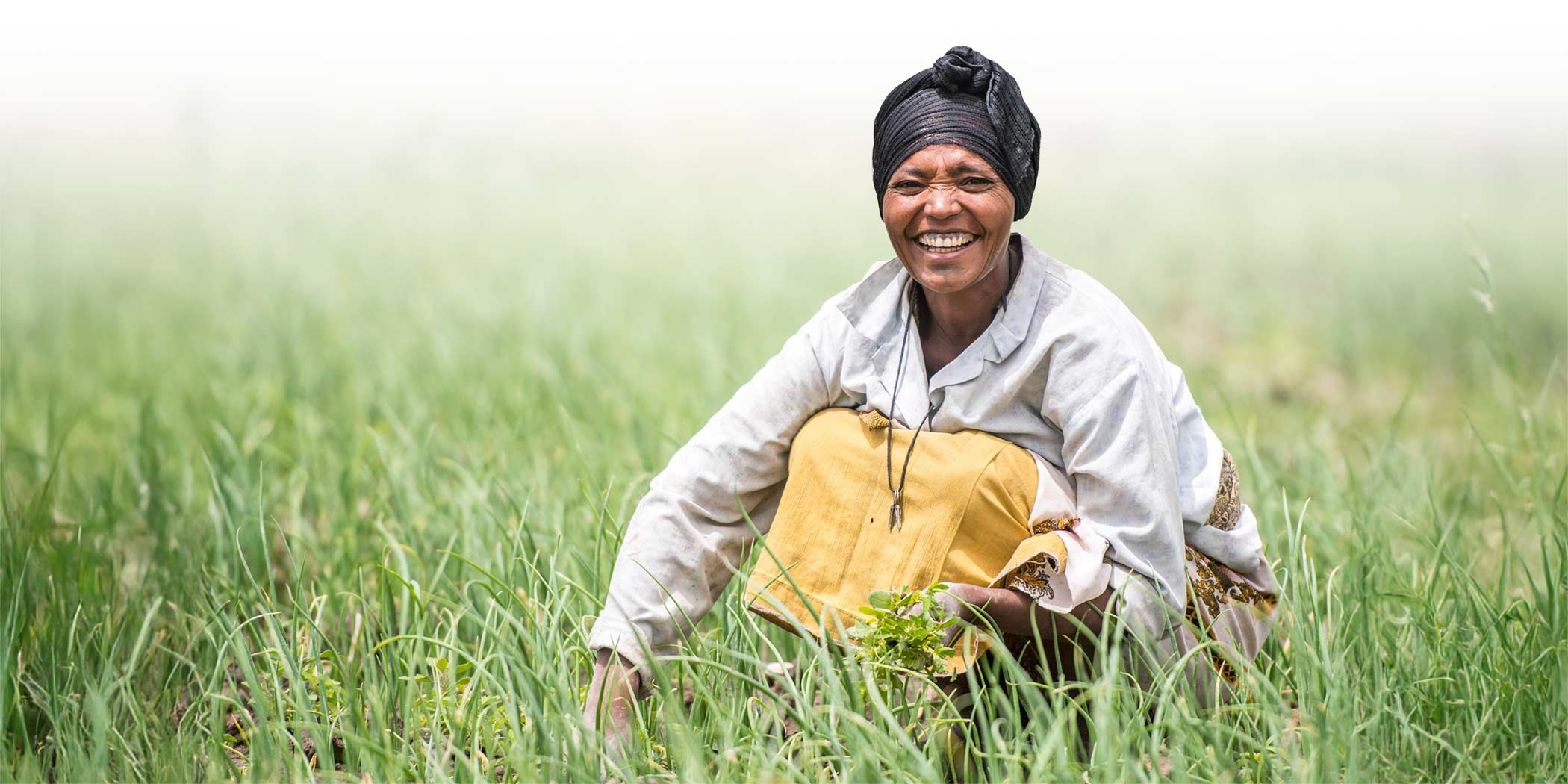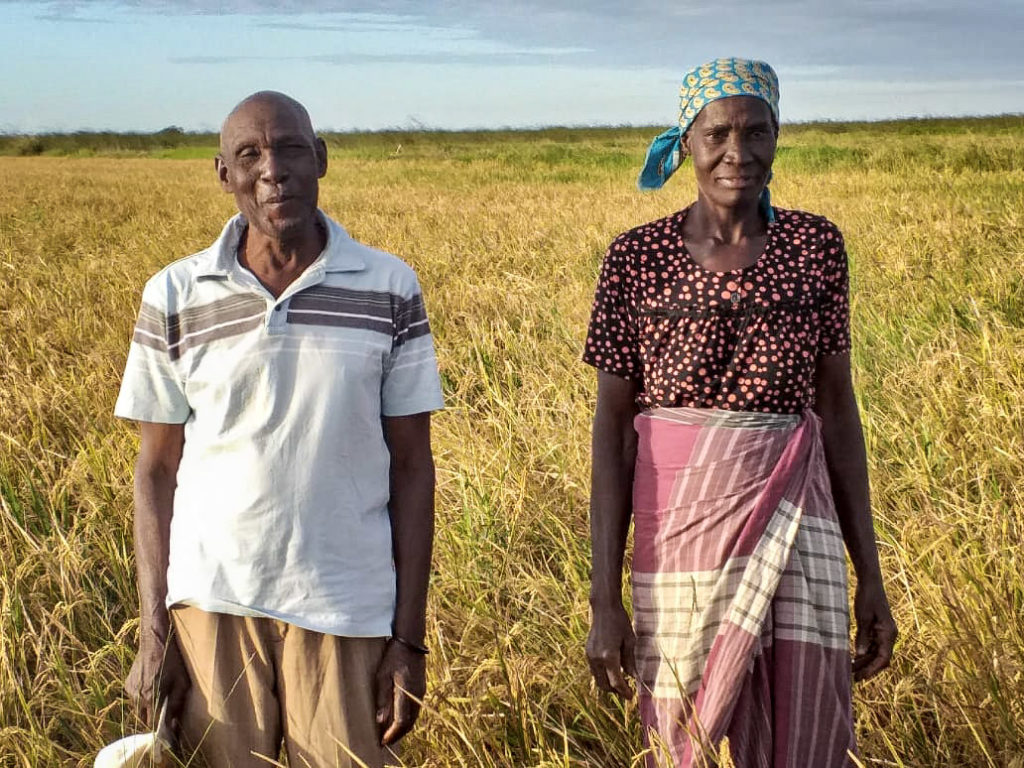
The FAR project (2017-2022) was a Swedish International Development Cooperation Agency (Sida)-funded integrated program that aimed to improve food security and resilience to climate shocks for 30,000-45,000 smallholder farmer households in the provinces of Manica and Sofala in Mozambique.
FAR aimed for food security and resilience to climate shocks for 30,000-45,000 smallholder farmer households in the provinces of Manica and Sofala in Mozambique.
IFDC was subcontracted by Swisscontact to implement the FAR-Sofala project, which introduced improved farming inputs and climate-smart agriculture practices combined with strong market linkages to semi-subsistence and semi-commercial smallholder rice and vegetable farmers. Integrated soil fertility management (ISFM) and slow-nutrient-release products, such as coated urea, were the key innovations used to increase the reliable availability of and access to nutritious foods.
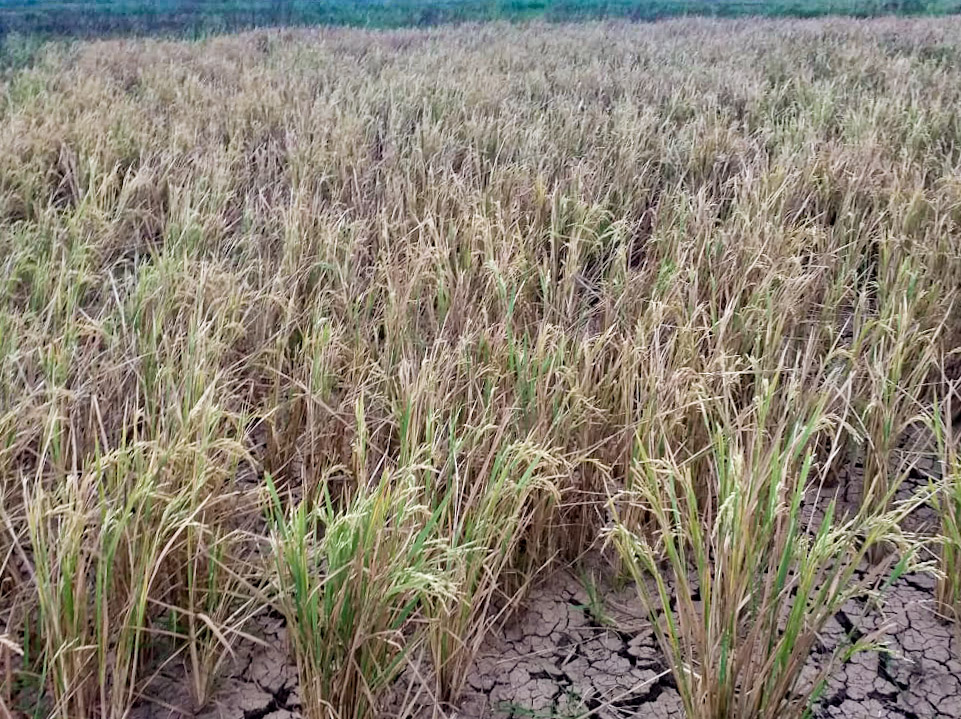
Goals Met
- Introduced new seed varieties and climate-smart practices.
- Assisted farmers to recover from the March 2019 Cyclone Idai.
- Provided technical backstopping to equip farmers to best use new seed varieties.
Results
2020
- 3,587 farmers (74% women) were provided access to nutritious food as well as money from selling produce through the introduction of improved seed and fertilizer, climate-smart agricultural practices, capacity building for farmers, and linkages to input and output markets.
- COVID-19 awareness and practices were incorporated into the project’s field days. Measures included convening small groups of no more than 15 farmers, with social distancing of 1-1.5 meters and hygienic practices, such as handwashing.
- Educating farmers in rural areas about COVID-19 has allowed food-insecure countries, such as Mozambique, to continue business as usual, without interrupting their farming operations while practicing measures to prevent the spread of the disease among their communities.
2019
- Introduced new seed varieties that are highly adaptive and resilient to climate impacts.
- Despite widespread devastation by Cyclone Idai, FAR-Sofala farmers were able to harvest rice that year due to the resilient seeds introduced by the project.
- Technical backstopping provided to farmers, including climate-smart practices and fertilizer, enables sustainability of scaled-out technologies.
- 141 vegetable producers (73% women) were trained in soil preparation for seedbeds, optimal size of seedbeds, sowing rates and depth, daily management of seedbeds, and optimal seeding size for transplanting.
- 240 soil samples were collected for the development of improved fertilizer blends for rice and vegetable production. IFDC and the fertilizer company Yara developed the improved blends to demonstrate on farmers’ fields in the 2018-19 cropping season.
- 140 “baby” and 18 “mother” on-farm demonstration plots were established on farmers’ fields in the 2017-18 cropping season.
- 259 people (248 women) were trained on how to prepare improved and diversified food and processing recipes based on rice. 96 people (93 women) were trained on the development of business plans for selling rice byproducts.

